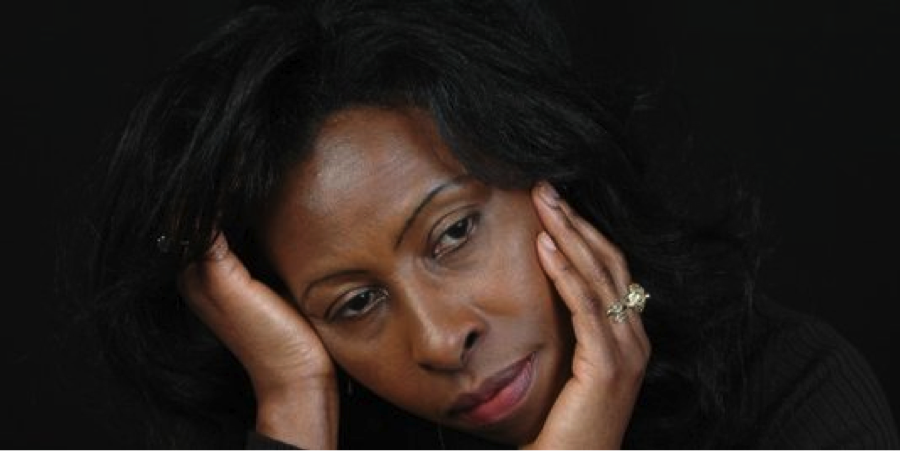
Our Lady of the Nile
Scholastique Mukasonga
Melanie Mouthner, Translator
(Archipelago)

The good Catholic nuns operate Our Lady of the Nile with a firm hand, there in Rwanda. But, rather than fretting about Rwanda's devilish history, we get to pass time in Mukasonga's gentle novel, an all-girl's school where they get to act like girls everywhere: forming cliques, laughing at some of their ungainly peers; worshipping some of the other students, being in love with "the Beatles, Johnny Hallyday, and Claude Françoise." And their teachers,Our Lady of the Nile was set up years ago by the Europeans to educate the daughters of middle class Tutsis and Hutus so they could successfully take their rôle as wives to the rich and famous, there near the capital of Kigali.
The school is also near the fabled source of the Nile, but, when one student, Veronica, tries to trace the river in her geography class,
she seems to have multiple sources, she hides in a lake, resurfaces, turns white, then gets lost in a swamp, while her Blue brother appears somewhere else.
§ § §
Goretti and Immaculée want to go into gorilla country up in Ruhengeri, so they head off one weekend, but when they get there, their guide can't help them because "the white woman doesn't want her gorillas disturbed." Evidently the primate doyen Diane Fosse isn't all that fond of the people in the country where she has taken root, her and their many gorillas. She says that "they're frightened of them. They know its the Rwandans who kill [and eat] them."
Immaculée reports, "We were heartbroken at the white woman's forbidding us to visit our gorillas," but then they find if they pay the guide a couple of goats, he will let them go up to see them in their natural habitant. Later, she says how "The mommies chewed bamboo shoots for their young to eat, like our grandmothers did with sorghum." She has a theory about them, too:
Gorillas refused to become human; they were almost humans but they preferred to remain monkeys in their forest atop the volcanoes. When they saw that other monkeys like them had become humans, but had also become mean and cruel and spent their time killing each other, they refused to become humans.
She thinks that the church's "Original Sin" means "when monkeys turned into men."
§ § § With Mukasonga we get to explore the phenomenon that comes sooner or later to all young girls; here, arriving in the chapter entitled, ulp, "The Blood of Shame." When you first start to bleed, as Modesta does, right in the middle of class (of course), she is told to go to Sister Gerda's office, so she can learn who she is. "So, you're a young woman now. You'll see how much you have to suffer for that: it's God's will, payment for Eve's sin; Eve who opened the door to the devil; Eve the mother of us all."
Women are made to suffer. Modesta, what a beautiful name for a woman, for a Christian woman. From now on, every month, this blood will remind you that you're only a woman, and if ever you float off thinking you're beautiful, it will be there to remind you of what you are: just a woman.
§ § § Finally there is the visit of the Queen of Belgians, Queen Fabiola, "to recognize and encourage the Rwandan government's female advancement policy." The school girls are beside themselves, and "the joyful commotion that swept over the lycée during preparation for the royal visit delighted all the pupils." But one student is strangely quiet. Godelive. She swears the others to secrecy and announces that she will be leaving with the King and Queen, going back to Belgium with them. Why? Because, it is well known, "Baudouin and Fabiola can't have children."
So the President thought that since they were coming to Rwanda, at his invitation, the most beautiful gift to offer them would the the gift of a child.
"You know very well it's the done thing in Rwanda."
One of the girls is disbelieving: "And you're the one he's giving to the King of the Belgians? At your age? A big fatty like you! With your kind of grades! Can you see yourself as Fabiola's daughter?"
No no no, you don't understand, says Godelive. "I'm just going to accompany one of the king's daughters, Merciana . . . She's nine and very light skinned, looks like her mother. She could almost pass for a white girl." Godelive will accompany her to Belgium, for Merciana "needs someone to speak Kinyarwanda with so she's not too homesick, someone to cook her bananas or cassava when she gets a craving."
How this turns out, dear reader, I am going to leave for you to find out once you pick up this absolutely charming book about a girl's school in Rwanda, fearing --- as I did --- that it would be filled with gore like the country it tells of. Or that we would find ourselves in a sugar-cane tale of sweet young girls swept off to live for the rest of their happy lives, part of the queen's now happy family.
Well, both and neither. Give Our Lady of the Nile a chance to charm you. It will. Guaranteed.
--- Pamela Wylie